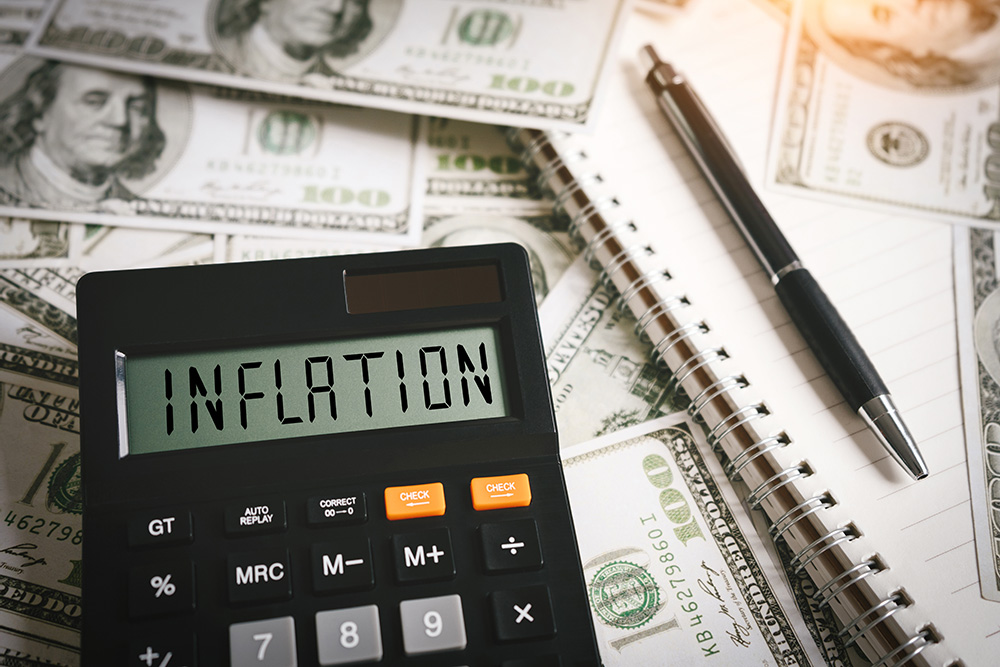In a meeting last week, The Oxford Club’s new CEO Todd Skousen told a story of how shocked he was when he grabbed some food at a recent Baltimore Orioles baseball game and he was asked how much he wanted to tip.
The reason he was so surprised is he had no human interaction during the process. He grabbed the food himself and went down the line to a kiosk to pay for it. And after receiving that high-quality service, he was asked whether he wanted to tip 15%, 20% or 25%.
Todd is not some old curmudgeon. He’s younger than me. Now, I can be curmudgeonly (I once told someone to get off my lawn, but it was an adult rather than a kid, so it was justified), but the same thing that happened to Todd happened to me, and I was stunned as well.
I’m already paying $9 for a hot dog and $5 for a bottle of water, and now I’m expected to pay an additional 20% on top of that?!
Don’t get me wrong. I’m no cheapskate. I bartended in college and shortly after. As a result of working in the service industry, I am a generous tipper.
But when you’re expected (or at least asked) to tip on takeout orders, things have gone too far.
Tips are just one of the “hidden” costs that make everything more expensive these days.
Insurance costs are going through the roof… literally. Replacing a 23-year-old roof with a brand-new one couldn’t keep a lid on my homeowners insurance, which went up 20% this year.
Housing costs have gone nuts, gas is more expensive, utility bills are rising and entertainment costs have gotten ridiculous. A family of four that wants to go to a professional sporting event or see a Broadway show practically needs to take out a mortgage. It’s not just the cost of milk and bread at the supermarket that’s gotten out of control.
So how do you ensure your money is keeping up with inflation?
First, get rid of your no-interest savings accounts. The big banks like Bank of America, Wells Fargo and JPMorgan Chase have been screwing their customers for years by offering absurdly low rates. I won’t apologize for the salty language because that’s exactly what they’re doing.
Have a savings account at Wells Fargo? You’re earning 0.15% and probably paying a $5 monthly service charge.
But that’s generous compared with Bank of America. If you’re one of its best customers and have achieved Diamond Honors status, you’ll earn… 0.04%.
If you have a savings account with one of the big banks that is paying nothing, tell them where they can stick their 0.04%. There are plenty of banks that offer significantly better rates. I’m talking 4.5% to 5% (or more) on savings accounts insured by the Federal Deposit Insurance Corporation.
In fact, I gave a presentation on this very topic recently because I was so angry about how the big banks are treating their customers. (We’re working on making a recording of this presentation available to you soon – keep an eye out in the coming weeks.)
The other thing you should do is ensure that your income is constantly growing by owning stocks of Perpetual Dividend Raisers – companies that increase their dividends every year.
The ever-rising income stream will help you maintain your buying power during this high-inflation period and will increase your buying power when inflation is lower.
If inflation comes back down to the historical average of about 3.4% and your dividends are growing, say, 8%, you have grown your buying power – even after you factor in taxes. Something that cost $1,000 initially would cost $1,034 a year later due to inflation, but $1,000 in dividends would grow to around $1,050 (after taxes). You’d be able to afford the higher price and have money left over.
I look for stocks that have raised their dividends every year for at least five years – and it must be by a meaningful amount. A 1% increase doesn’t do much, but an 8% growth rate does.
For example, HP (NYSE: HPQ) has raised its dividend every year for 13 years. The compound annual growth rate of the dividend over that time is an impressive 16.4%. That will outpace even the highest inflation.
But megacaps like HP aren’t the only stocks that can help you achieve dividend growth.
Taitron Components (Nasdaq: TAIT), which has a tiny $21 million market cap, yields 5.6% and has raised its dividend for five consecutive years at a compound annual growth rate of 14.9%.
As I tell my kids all the time, life is expensive. Everyone needs to ensure that their money is earning as much as possible to keep up with these insane price increases.
And when it comes to tipping… if there was no service, hang on to your money. Save that 15% to 20% for someone who works hard for you – maybe even for yourself.
